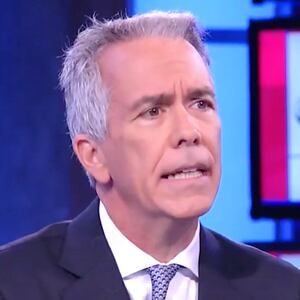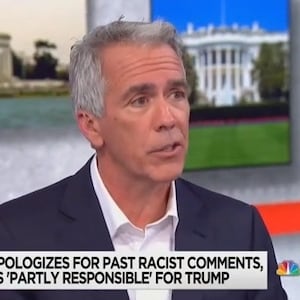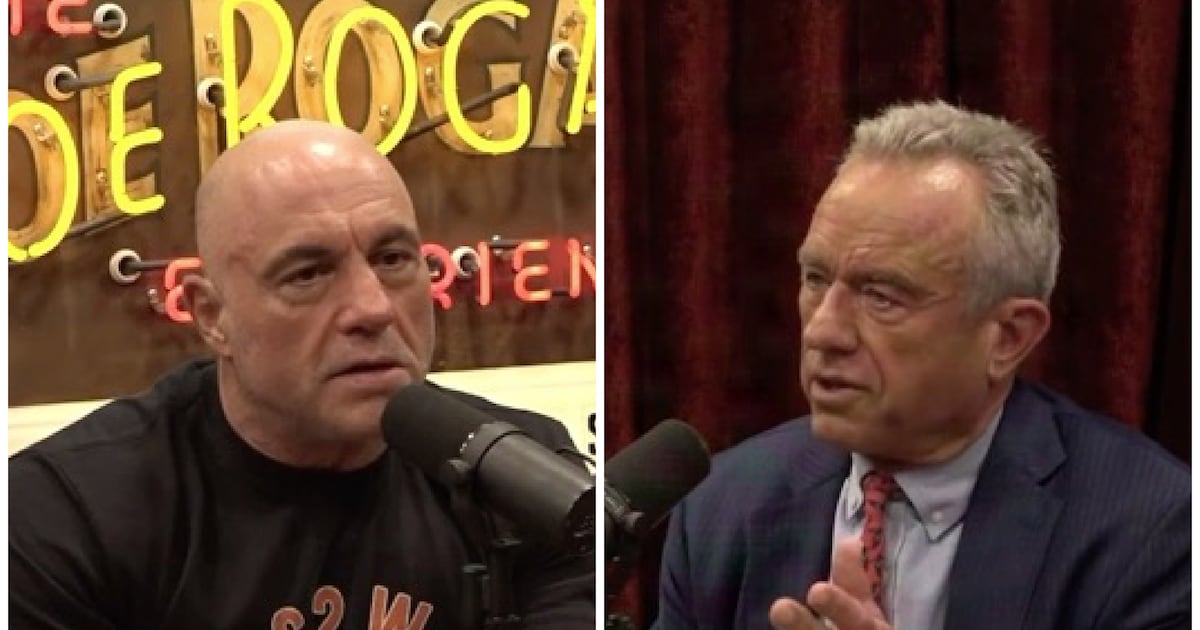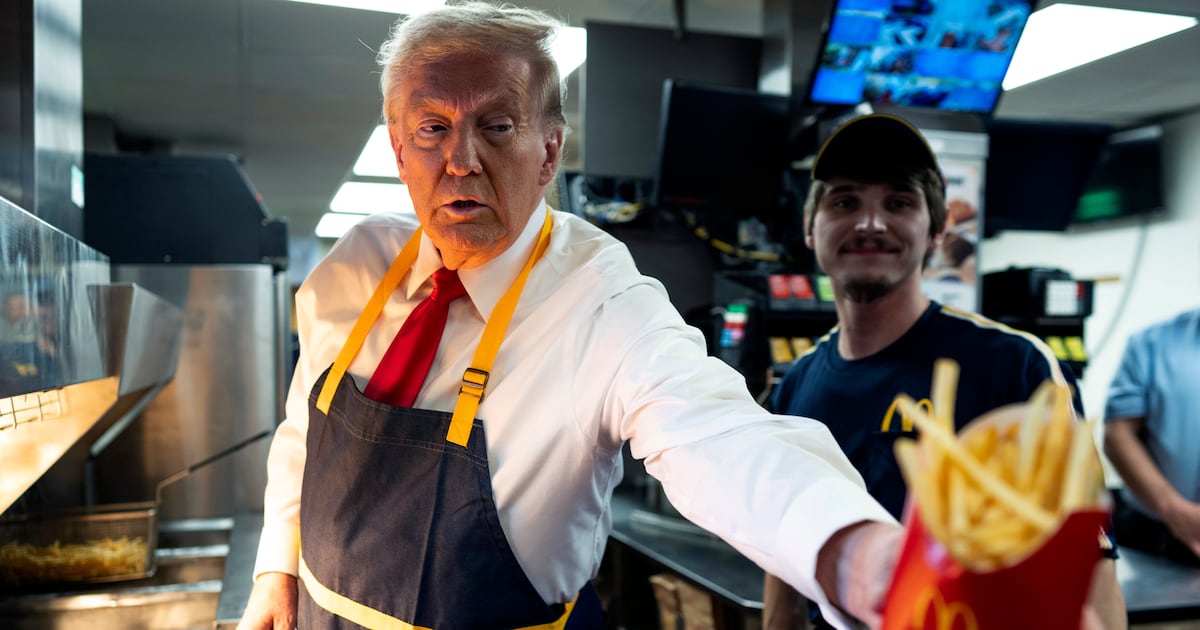August 16 was supposed to be the day of former congressman Joe Walsh’s planned presidential campaign launch, but just hours before the announcement, his own campaign manager couldn’t get him to pick up the phone.
“As of this morning, it has been eight days and 23 unanswered phone calls since I last spoke with Joe,” wrote Jacob Perry, a Tallahassee-based Republican campaign operative and Trump critic who had signed on to run the former Illinois congressman’s longshot challenge to the president’s renomination next year. Two days earlier, Walsh had penned a New York Times op-ed hinting at a potential run against Trump.
“Needless to say, it's the first time in my entire career that I've been hired to run a campaign and then been completely ghosted by the candidate,” Perry wrote to a small group of potential campaign vendors and staffers in an email obtained by The Daily Beast. “It's obvious to me that the campaign plan that we have all worked hard on together in anticipation of a launch today isn't going to happen, so I am officially releasing all of you from your obligations and agreements.”
The eventual announcement didn’t come for another week.
And the Walsh campaign disputes that Perry was going to run the campaign in the first place.
Walsh’s supporters, which still include Perry, concede that his odds of winning the GOP nod are vanishingly small. But Perry and other Republicans who took up the “Never Trump” mantle during the 2016 campagin are determined to make a stand, even a futile one, against a man whom they still consider to be wholly unfit for the office.
But according to interviews with people who worked with and advised Walsh in the weeks leading up to the announcement of his candidacy on Sunday, and who share his goal of at least denting Trump’s political appeal, the former congressman rushed into the race without anything approaching the preparation required.
In an announcement video over the weekend, Walsh confirmed he was basically going to wing it.
“When I first started thinking about running for president, talking to my family, close friends, people I trust, I started hearing about all the things I needed to do to test the waters,” Walsh said in the video. “Start an exploratory committee, hire a speechwriter, get an image consultant, all the practical steps that conventional campaigns take. But these are not conventional times. These are urgent times…So to hell with all those conventional things.”
Among the “unconventional” challenges with which Walsh has already been forced to contend is a string of controversial, even racist, social media posts that would make even President Donald Trump blush. Predictably, within hours of Walsh officially entering the race, the worst of those posts had resurfaced and gone viral.
A one-term congressman who represented the affluent suburbs north of Chicago, Walsh was initially elected in the Tea Party wave of 2010. He earned a reputation as a right-wing firebrand, and even after his defeat in 2012—at the hands of now-Senator Tammy Duckworth—Walsh maintained a fringey public persona, blasting off highly inflammatory missives through his highly active social media accounts, with some of his more outlandish statements coming as late as last year.
“To say that it’s ‘racist’ to call Haiti a shithole is like saying it’s ‘racist’ to say Chicago has a violence problem,” Walsh declared in one January 2018 tweet. “Haiti is a shithole and it’s run by blacks. The violence in Chicago is all black on black. Those aren’t racist statements. They’re just facts.” In a tweet a month later, Walsh defended the false assertion that Barack Obama is a Muslim. A pair of tweets the year before indulged debunked conspiracy theories surrounding the 2017 murder of Democratic National Committee staffer Seth Rich.
Walsh has publicly apologized for many of those statements since reentering the national spotlight this month, and he reiterated his regret in a brief interview with The Daily Beast on Monday. The tweet calling Obama a Muslim, he said, “was a stupid thing to say, it was an incendiary thing to say, and it’s probably the thing I regret saying most.”
But he’s not entirely apologetic. Walsh stood by his Haiti comments in an interview with the Washington Post on Monday. "I hardly agree with anything Trump said--look, Haiti is a shithole,” he said. “You could describe it as other things, too."
Those who support him nonetheless believe that he is sincerely remorseful about his outlandish past statements. But they are also baffled that Walsh failed to take even minimal steps—like, say, deleting some of his most offensive tweets—before declaring his candidacy to attempt to insulate himself from the inevitable onslaught that would ensue, both from Trump supporters and progressives not keen to let years of vicious attacks on Barack Obama and other Democrats just fall by the wayside.
The Walsh campaign writes off the seeming lack of preparation as a sincere desire to convey authenticity. “He’s been very deliberate and very clear that he will not shy away from his record. He’s not going to delete tweets,” said Lucy Caldwell, a Republican strategist who now leads Walsh’s campaign, in an interview on Monday.
Caldwell even attempted to spin Walsh’s more inflammatory statements as a potential campaign asset. Walsh, she said, is “accounting for things he’s said in the past, and that’s something our current president does not do, and that’s one way that Congressman Walsh wants to differentiate himself.”
Caldwell insisted that the campaign rollout had exceeded expectations. “We knew exactly what we were doing, and we were blown away by the response we got yesterday,” she said.
She acknowledged that it was a hastily assembled effort that was still working out some major details, but dismissed concerns that Walsh was woefully unprepared for the task.
Asked about Perry’s email and internal issues it revealed, Walsh chuckled. “This thing’s been thrown together in two to three weeks,” he said. “This has been a helter skelter process.” Walsh called Perry a “great guy,” but suggested that he was just one of a number of people advising him prior to his campaign launch.
Caldwell said she couldn’t speak to the details of Perry’s email, but that the early internal communications breakdown only spoke Walsh’s political appeal. “Congressman Walsh has been clear that he’s running a non-conventional campaign,” she said. “We’re grateful for everyone who’s talked to Congressman Walsh over recent weeks and months, and grateful to anyone who’s brave enough to stand up to the culture of fear that the [Republican National Committee] has instilled in consultants and staff anywhere.”
Efforts to staff the Walsh campaign, though, have resulted in some heated disputes among Republican operatives. A private email list of conservative digital professionals devolved into intense bickering on Monday after Caldwell sent around an open invitation for job applications.
“I hope everyone on the list is aware that your boss has some pretty nasty skeletons!” replied Jon Schweppe, the director of policy and government affairs for the American Principles Project, who cited Walsh’s racist statements and his past failure to make child support payments.
“When the Congressman was playing on Team Trump, you didn’t seem to have a problem with it (defended him, even!),” Caldwell shot back. “Joe Walsh has never claimed to be a perfect person, but he’s taking responsibility for incendiary comments in the past and is an exceptionally authentic candidate.”
Walsh’s longshot campaign has drawn support from some of the GOP’s most prominent Trump critics, including attorney George Conway and pundit Bill Kristol. But some who counseled him ahead of his entry into the race said their suggestions to take his time, build a more appealing brand, and work to distance himself from controversial past statements went unheeded.
“Once the New York Times piece hit and everyone started calling for interviews, it looks like the allure of fame took over,” said one prominent Trump-skeptical Republican who counseled Walsh prior to his announcement, and who asked for anonymity in order to speak frankly.
Perry was one of a number of early advisers urging Walsh to slow-roll his presidential campaign, and instead, at least initially, create a political group that he could use to steer money to like-minded candidates for office before jumping in himself.
“Joe and I parted ways over direction,” Perry said. “I (and lots of other people) urged him to form a Super PAC to go after Trump with but he was determined to run as a candidate.”
Perry said he still fully supports Walsh, whose recent apologies for past statements Perry considers fully sincere. “I think he is genuinely a different person than he was even a year ago.”
“I think Joe is a fantastic human being,” Perry added. “I think he has a gigantic heart, and like most people who are super passionate, their emotions often get ahead of logic.”








